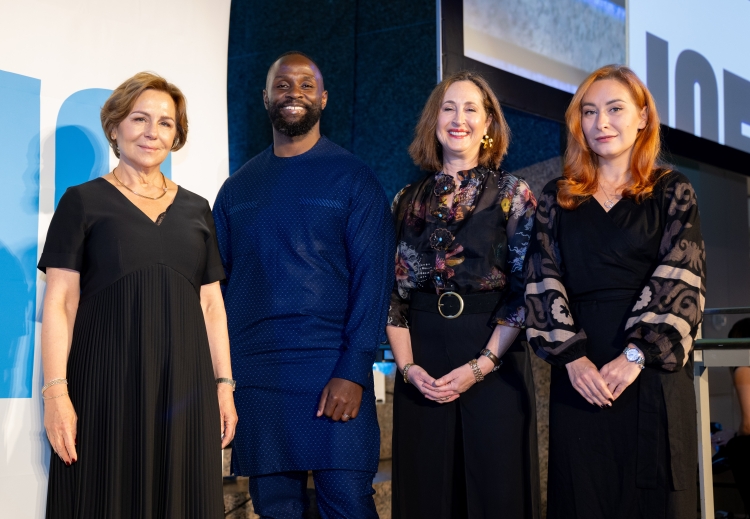
On November 14, we celebrated the best in journalism globally at ICFJ’s 40th Anniversary Tribute to Journalists in Washington, DC.
We recognized our 2024 ICFJ Knight Award winners – three inspiring journalists who have made a mark with their courageous investigative reporting.
The evening’s highlights included:
- John-Allan Namu, the Africa Uncensored co-founder known for exposing the impact of corruption on ordinary citizens in Kenya, said: “Today, in my country, a new generation is saddled with debt that they didn’t take on, worn down by corruption, and struggling to make sense of killings and abductions in the wake of nationwide protests. It is our job to tell these stories.” Read more and watch his tribute video, narrated by ABC News’ Juju Chang.
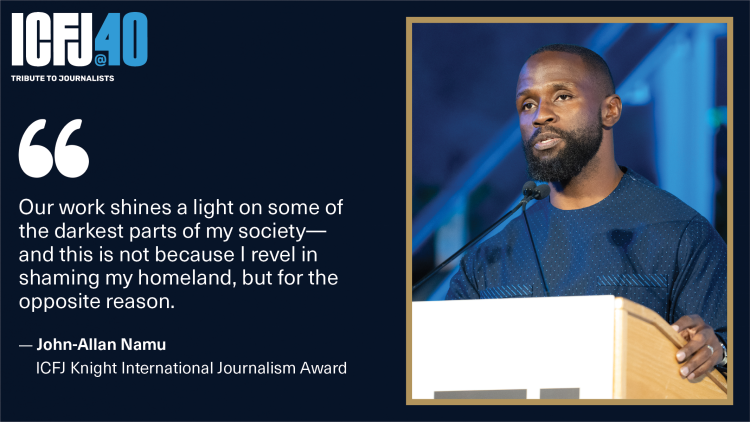
- Valeriya Yegoshyna, the Schemes investigative reporter who reveals war crimes in de-occupied areas of Ukraine while continuing to probe corruption, said: “Before the war that started in 2014, journalism for me was a way of learning about the world and a way of life. Now journalism is equal to life for me. Journalism in Ukraine is a fight for life – for your life and the life of the country.” Read more and watch her tribute video, narrated by Jonathan Capehart, of MSNBC and The Washington Post.
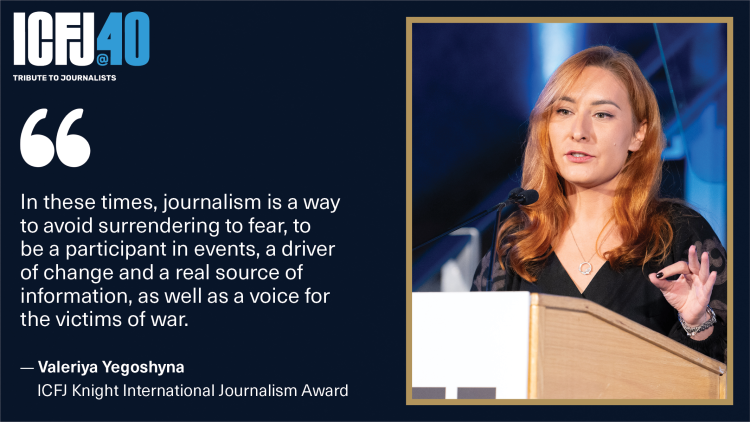
- Rana Sabbagh, a senior regional editor for the Organized Crime and Reporting Project (OCCRP), dedicated her award to the hundreds of “brave Arab colleagues” she has worked with over the years: “They define what is best in our journalism…the unwavering commitment to document the human suffering, the battles, the criminality and the selfless commitment of so many who daily risk their lives to help others.” Read more and watch her tribute video, narrated by CBS News’ Elizabeth Palmer.
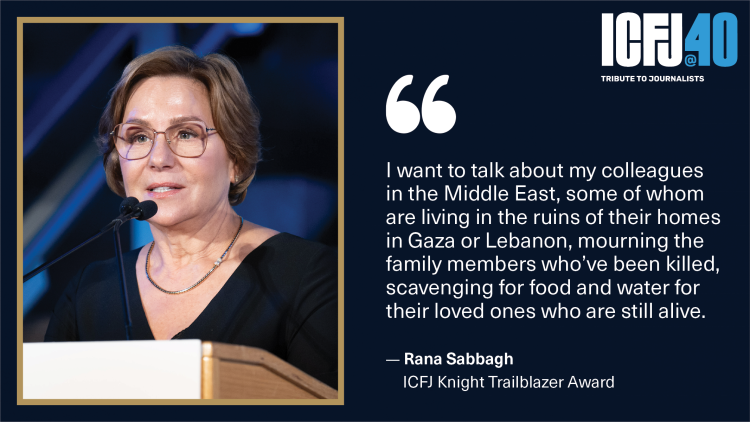
Kristen Welker, moderator for NBC News’ Meet the Press, served as our fantastic emcee, for which we are immensely grateful. She also led a timely conversation on elections in the U.S. and beyond, with Peter Baker, chief White House correspondent for The New York Times; Eugene Daniels, Playbook co-author & White House correspondent for POLITICO; and Maria Ressa, CEO & co-founder of Rappler Inc., and Nobel Peace Prize laureate. Read more.
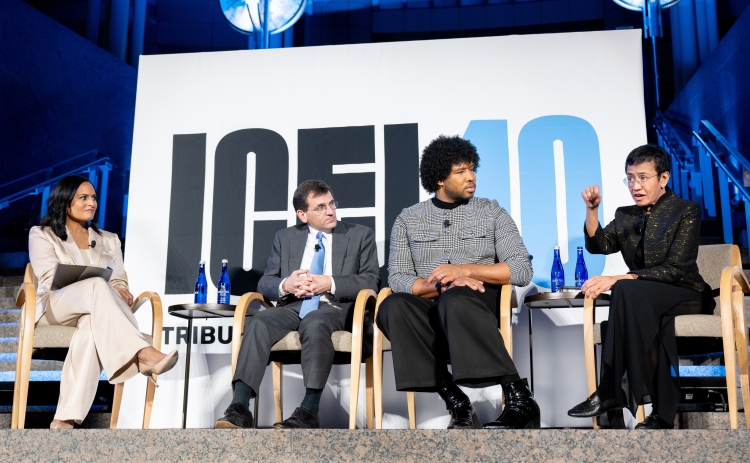
We also heard from journalists in ICFJ’s global network, whose stories were featured throughout our program. In addition, the evening included a rare silent auction of striking images from some of the world’s foremost photographers.
You also can see photos of the evening here.
Thanks to your support, we are able to back journalists like our award winners, as well as thousands of others around the world who rely on ICFJ to fulfill their vital role. Journalists give us the information we need to fight against corruption and injustice – and to safeguard freedom and prosperity. We are grateful to our Tribute sponsors, board of directors, and others who have donated. To those who have not, please consider making a contribution today. This work has never been more important.